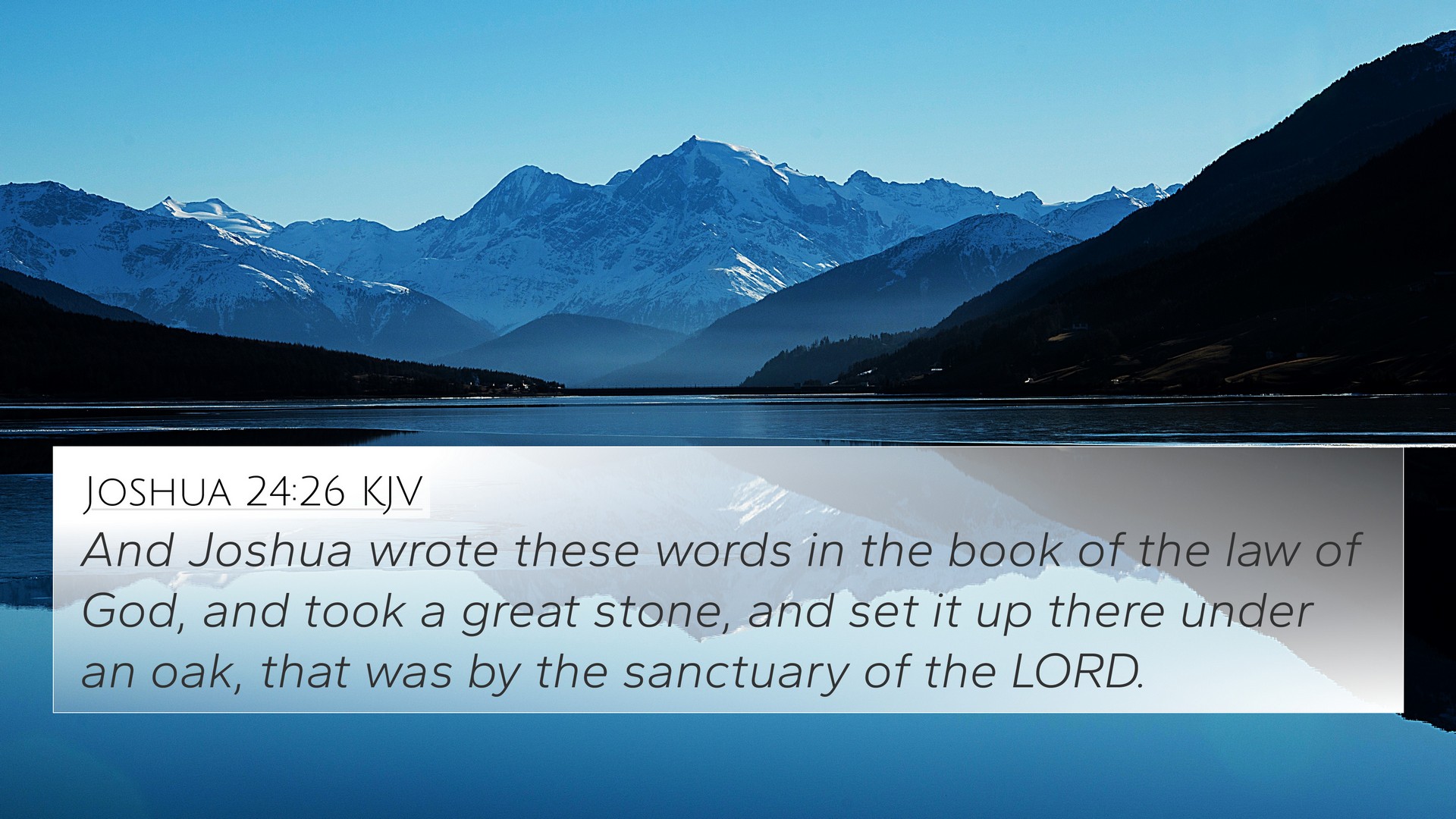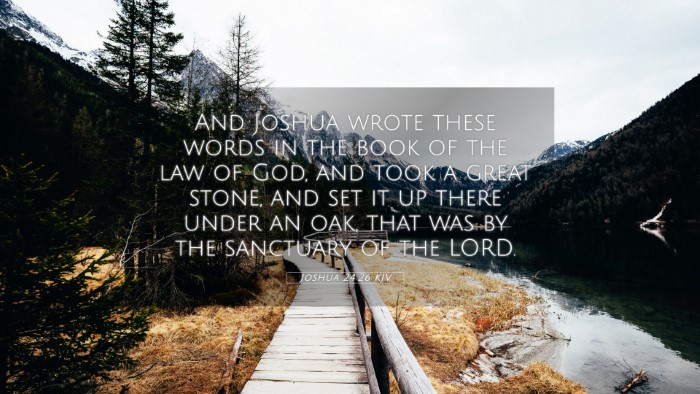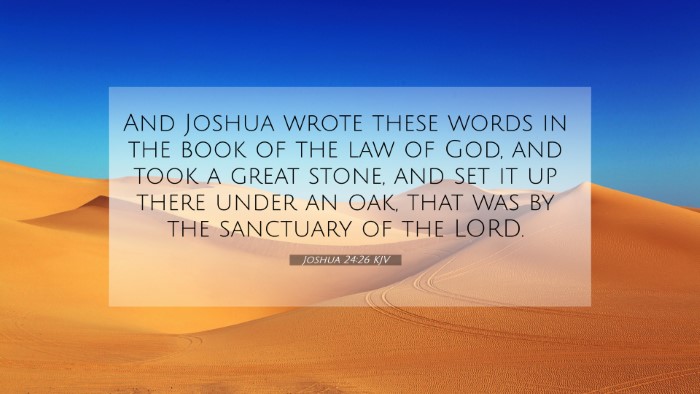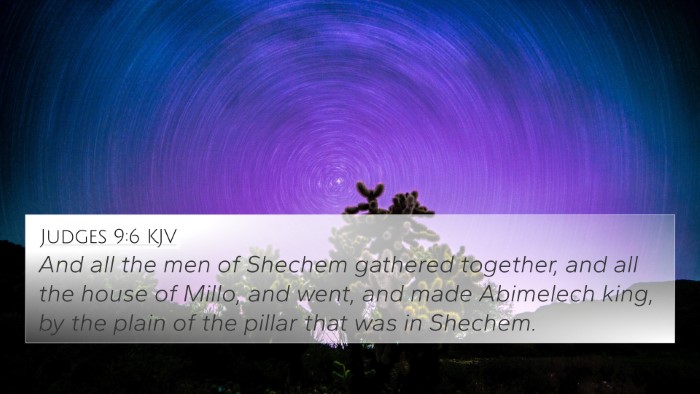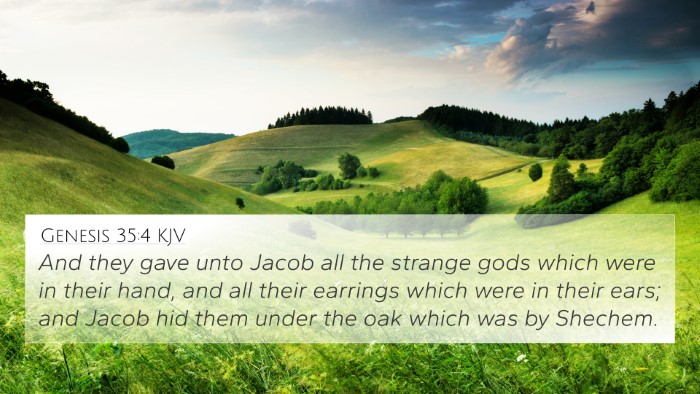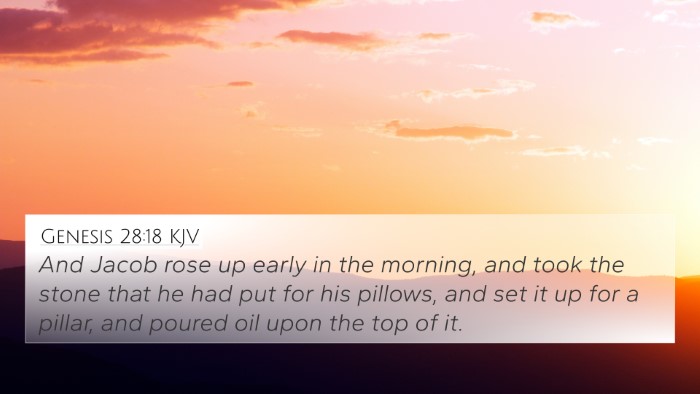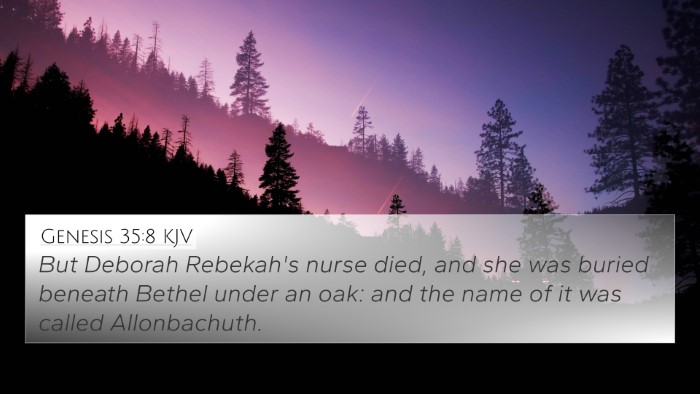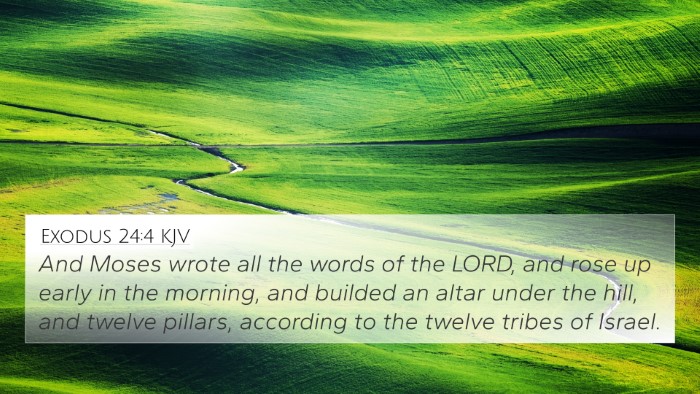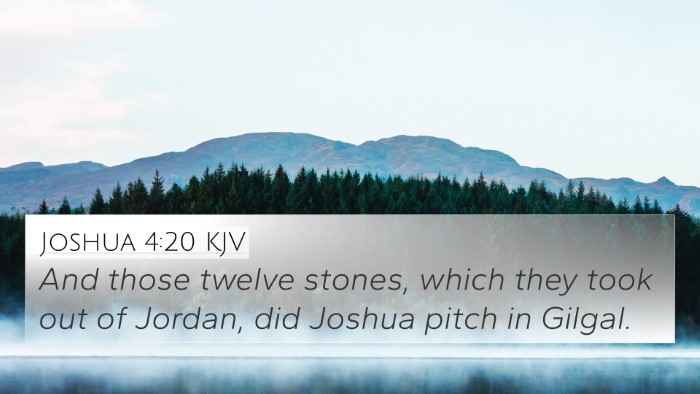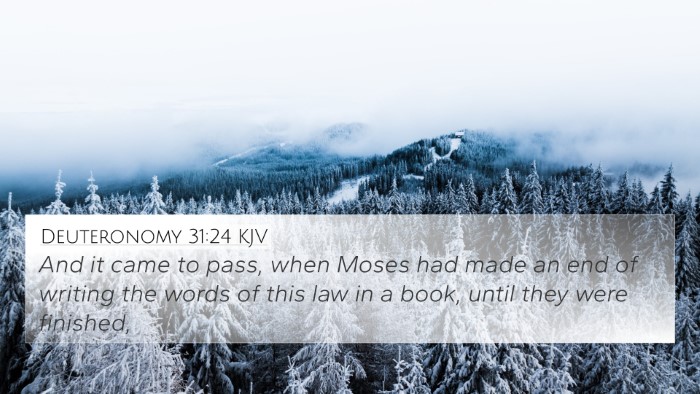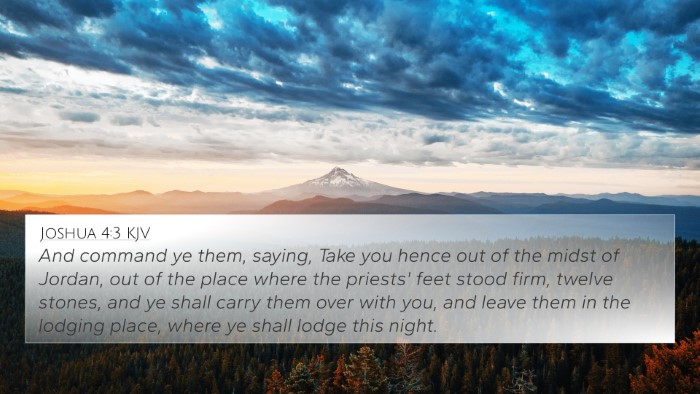Understanding Joshua 24:26
Joshua 24:26 states:
"And Joshua wrote these words in the book of the law of God, and took a great stone, and set it up there under an oak, that was by the sanctuary of the Lord."
This verse marks a significant moment in the history of Israel as it encapsulates the covenant between God and His people, solidifying their commitment to follow His commands. The act of writing down these words serves to formalize and preserve the covenant made during the assembly at Shechem.
Commentary Insights
Based on the observations from respected public domain commentaries, we can summarize the meanings and implications of Joshua 24:26 as follows:
-
Matthew Henry:
Henry emphasizes the importance of memorializing God's words. By writing them down, Joshua ensures they are not forgotten, which emphasizes God’s laws' enduring and authoritative nature.
-
Albert Barnes:
Barnes points out that this act signifies both accountability and a call to remembrance for future generations. It serves as a physical reminder of their commitment to serve God alone.
-
Adam Clarke:
Clarke further elaborates on the significance of setting the stone under the oak as a sacred site. It symbolizes stability and permanence in the relationship between God and His people, continuing the theme of divine promise and human response.
Thematic Connections
This verse connects to various themes within the biblical narrative. Below are some notable connections and cross-references:
- Exodus 24:4: Moses writes down all the words of the Lord, establishing a strong parallel to the act of Joshua recording the covenant.
- Deuteronomy 6:9: Similarly, this verse discusses the command to keep the words of the Lord prominent, which echoes the significance of Joshua's actions.
- Psalms 119:11: This verse speaks of hiding God's word in one's heart, further reinforcing the idea of remembering and cherishing God's commandments.
- Hebrews 8:10: This New Testament reference points to God’s promise of writing His law in the hearts of His people, echoing the theme of internalizing God's instructions.
- Joshua 1:7-8: The call to meditate on the law is a precursor to Joshua’s act of recording. It illustrates the importance of Scripture in leading a righteous life.
- 1 Samuel 10:25: Reference to writing down the ordinances for future generations exemplifies the continuity of God’s covenant through written law.
- Matthew 5:18: Jesus affirms the enduring nature of the law, paralleling with Joshua’s actions to maintain God’s commandments over time.
The Role of Cross-Referencing in Biblical Study
Understanding Joshua 24:26 is enriched through the practice of cross-referencing, which sheds light on its significance within the broader biblical context. Here are some methods and tools for effective cross-referencing:
- Bible Concordance: A tool for finding verses related to themes, concepts, or keywords.
- Bible Reference Resources: Comprehensive materials that provide insights into interrelated scriptures for deeper understanding.
- Cross-Reference Bible Study: Engaging in studies that highlight connections between various books of the Bible.
- Interpreting Biblical Themes: Utilizing cross-references to evaluate how themes manifest across different scriptures.
- Tools for Bible Cross-Referencing: Various digital and print resources available for exploring scripture connections, such as chain references and parallel studies.
Conclusion
Joshua 24:26 serves as a vital reminder of the importance of maintaining the covenant relationship between God and His people. By understanding this verse through the lenses of multiple commentaries and engaging in a broad cross-referencing approach, one gains deeper insight into the enduring relevance of God's Word. The links between this verse and others remind believers of their call to remember and adhere to God's commands throughout generations.
